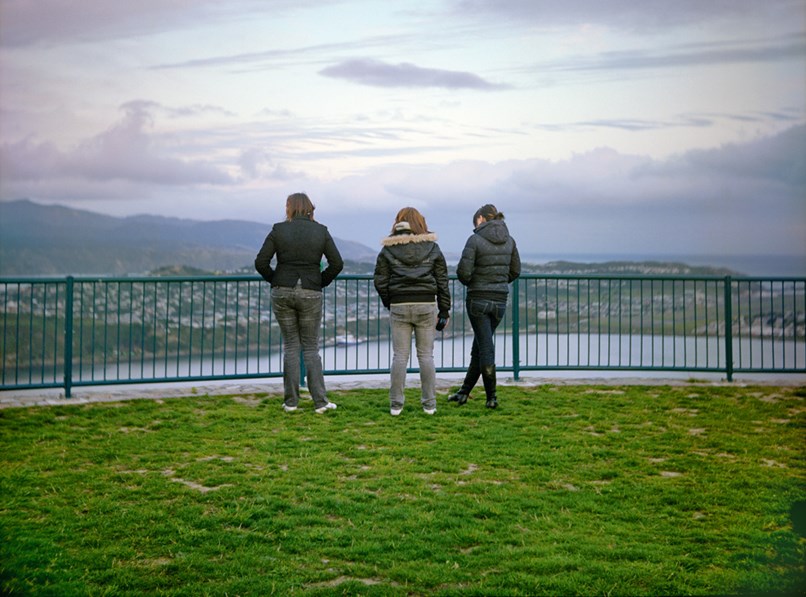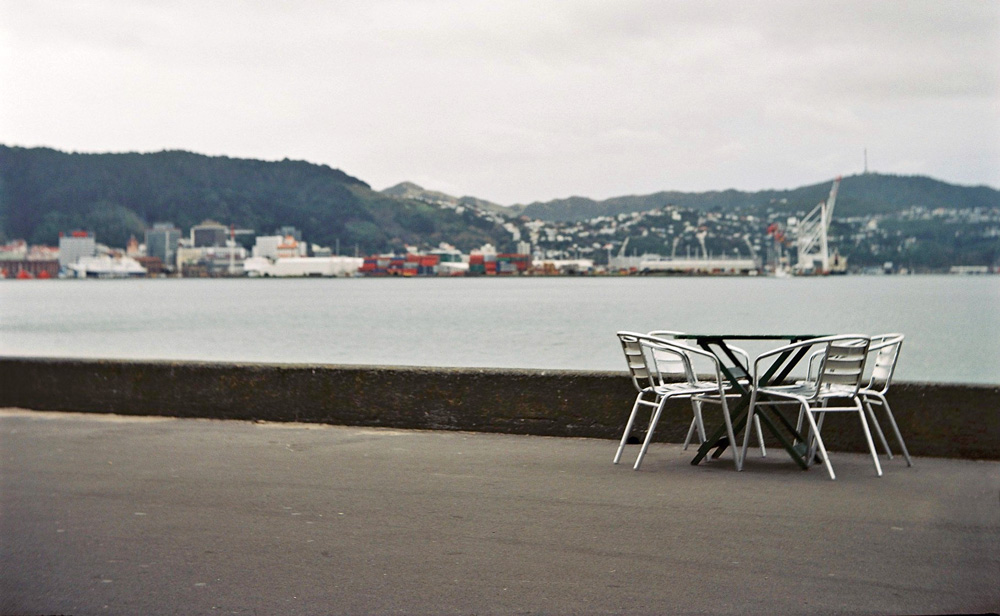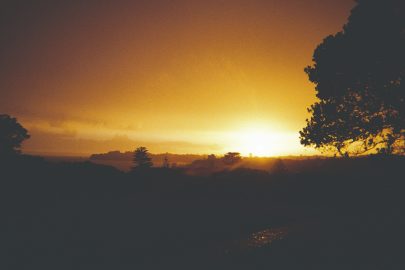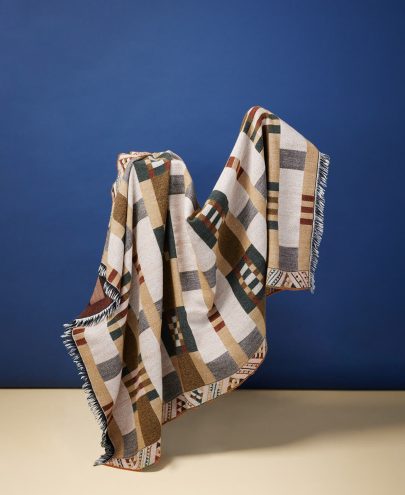Feb 23, 2015 etc

If Auckland is a city without a heart is Wellington a heart without a city? Inspired by a Metro essay on Auckland by a former Wellingtonian, transplanted Aucklander Damian Christie describes life in the “social Lilliput” of the capital.
Some crimes for which the jail sentence is two years: seditious conspiracy; rioting; indecent acts in a public place; misconduct in respect of human remains; stealing a horse. I jumped in my car and headed for my new job and new city of residence, Wellington.
I had lived in Wellington before. My father, an army man, was posted to Upper Hutt when I was at high school. The Hutt is Wellington’s answer to West Auckland, but with more skinheads. No one makes television programmes about a family of loveable rogues from The Hutt.
After school I moved into Wellington City, and lived there for long enough to know it was time to leave — about three years. Wellington is a claustrophobic place. Its residents phrase this more positively: “You can walk everywhere.” Well, you could, if it wasn’t raining while sub-zero, gale-force winds belt you into submission, on which, more later. In Wellington, there is no escaping anyone you might possibly want to avoid, short of bolting your front door and hiding under the bed.
On the first day walking down Lambton Quay for lunch, I ran into Steve, with whom I went to university. Nice enough guy. Recognising each other, we stopped and exchanged pleasantries and brief autobiographies. Then we exchanged cards. Then we exchanged promises (which we both knew would never be kept) of a “Let’s have a pint after work some day” nature, and exchanged farewells.
Day Two, who’s strutting down Lambton Quay? Steve. We both smile and slow down slightly, but think better of stopping — if catching up after 15 years apart took less than a minute, what can we possibly add after 24 hours?
The following day, you guessed it; there he is sauntering towards me. I’m sick of the sight of him. Yes, I get it, we shared a lecture together 15 years ago. We weren’t friends then, we’re not going to be now, but we’re forced to give each other the same vaguely embarrassed acknowledgement every single day for the rest of our Wellington-dwelling lives.
Take this example and extrapolate it to include everyone else you went to university with, everyone you went to school with, every ex-girlfriend still living here and their parents. And it continues. Like a booby trap in an Indiana Jones flick, every new person you meet represents those spike-encrusted walls inching closer. This is life in Wellington.
North Shore-born Phil Reed, who moved to Wellington four years ago and works as a freelance publicist, says he takes back routes when he’s in a hurry to avoid all those chance meetings. “Invariably you catch up with people and you don’t want to, because they might want to know where that report is you were supposed to send a month ago.
“It takes forever to come down Cuba St because you’ve got these five-minute conversations all the way down, but that’s the thing about Wellington. It’s very tightly networked so if you appear aloof or a bit short with someone it can have repercussions. These things have a habit of getting back to you a lot sooner than what you think. That’s why you can’t have affairs in this town — you will get found out.”
The village mentality is a double-edged sword for those who attempt to be single in Wellington. It’s easy to meet people; impossible to avoid them later. Frontseat producer Gemma Gracewood was born in the Hutt Valley but spent her formative years in Auckland. Gracewood returned to Wellington eight years ago, and while she loves living here, she admits that being single raises issues.
“In Auckland you can actually get away with quite a lot of ‘activities of the night’ before you bump into someone you’ve slept with before or your best friend’s slept with, or you realise you’ve all slept with the same person. In Wellington I realised pretty quickly just how small this town is when you excitedly tell your girlfriends and at least two of them say, ‘Oh yeah, I’ve been there too.’
“Through simply telling your girlfriends what’s been happening you learn pretty quickly who not to shag based on the stats going around the room. In Wellington there is at least one actor, one musician and one reporter that I would never touch because I would feel as though I’d slept with all my best friends as a result, and that’s just too weird.”
My own tentative foray into the capital’s single scene uncovered similar problems. After catching a show, my date and I went for a drink at a bar. A friend of mine was there with a man I didn’t know. We approached and I greeted them. In Wellington’s inevitable fashion, who else would this man turn out to be but my date’s very recent ex — a methamphetamine-addled ex with anger-management issues. Quite the first date, thanks Wellington.
Reed says that in Auckland he had a rule with mates that he wouldn’t sleep with their ex-girlfriends or sisters. “In Wellington I said that when I first became single, and everyone just laughed me out of the room!”
There are some benefits to life in this social Lilliput. Wellingtonians drink a lot — who can blame them — and it’s possible to go on a decent bar crawl of an evening without numerous taxi rides between establishments. Courtenay Place represents the greatest condensation of bars, with dozens in the space of a couple of hundred metres. On a Saturday night, this area is teeming with drunk young men staggering around in their on-the-pull uniform of striped white shirts, jeans and knock-off Diesel trainers.
If you want to avoid this awful spectacle — in Wellington it’s simple — avoid Courtenay Place. I know I do. It only takes one encounter with the drunken denizens of Courtenay Place to realise that as much as Wellingtonians would like to claim otherwise, it’s no more a “cultural capital” than the bottom of Queen St could be called a “finance district” or Tauranga an “international port city”. Yes there are a few theatres showing a range of plays, but with no Shortland Street cast members in them or the off-chance of artistic nudity from a Hawthorn what’s the point?
Then there’s the museum, Te Papa. I know it’s supposed to be “Our Place”, but honestly, Wellington can keep it. An architectural mishmash from the outside, and an assortment of gaudy, brightly lit interactive exhibits urging you to push this button or pull this lever to trigger bells, whistles and fake earthquakes. Nestled on the waterfront it doesn’t so much capture our nation’s social and cultural history as it does resemble a Fisher Price bath-time activity centre.
If, as Simon Wilson remarked in his Metro essay that Auckland is a city without a heart, then Wellington is a heart without a city. A real city should afford its residents the ability to be swallowed up and become anonymous. A real city should have at least one bar that stays open 24 hours a day. Even if you never take advantage of it, it’s reassuring to know the option is there. A real city should have celebrities. Even C-list ones. Auckland has Aja Rock. Wellington has Marian Hobbs.
“I’d been in Wellington a few months,” recalls Gracewood “and I got a call from a friend who was working for a PR company in Auckland. They were co-ordinating the launch of a new BMW model in both Auckland and Wellington and Auckland obviously was sweet for celebs, but because she’d never lived down here she didn’t know anyone down here, and could I help her co-ordinate the list of celebrities that ought to be invited. Woodward Lane was blocked off, there were models, free vodka, all that kind of thing, very flash. I thought, ‘Oh, it’ll be a breeze. I’ve been to heaps of those sorts of things in Auckland, no big deal.’ So I called my friend Cathy who was also a recent arrival from Auckland and told her, ‘I’ve got a great job for us, we just need to make this list of people up and we get to go to this sweet party.’ Two weeks later we’d come up with Kim Hill, Mark Sainsbury and [former TV3 political editor] Jane Young.”
If this seems trivial, you’re probably right. But without the trivial all we are left with is the substantial. Without the Sunday Star-Times’ About Town (not included in its Wellington edition), which section am I supposed to read in my fragile state at Sunday brunch? Business? World? Give me strength.
It’s Saturday night, and I’m at a party in Newtown. As far as Wellington parties go, it’s par for the course. The first people I see as I walk in are a white couple with dreadlocks, drinking some sort of organic boutique beer. Wellington has more white girls with dreadlocks than I have ever seen anywhere. They wear skirts over trousers. They are all vegans.
Inside I strike up a conversation with an ordinary-looking bloke. “So what do you do?” I inquire. It’s the standard Auckland opening gambit, the equivalent of Christchurch’s “What school did you go to?” “I work at the Ministry of Statistics,” he says, neither enthusiastically nor apologetically.“Wow, what are the odds?” I joke, realising as the words come out of my mouth that I just shouldn’t bother. In fact, the odds of meeting a bureaucrat at a party in Wellington are about the same as meeting one on Lambton Quay at lunch hour — pretty damn high.
But that’s Wellington. You’re either a bureaucrat, or someone in the private sector whose income derives from supplying bureaucrats. So it’s no surprise that everything runs with the speed and efficiency of the lowest common denominator — the state sector shuffle.
Expect psychometric testing, a two-stage interview process and four to six weeks of deliberation before securing that minimum-wage waitressing position. Expect landlords who will actually check all three of the referees you’ve provided. Expect your morning bus to come to a grinding halt because the poles have fallen off the overhead electrified cables. Again.
On the positive side, if you are inclined to kick back, not make a fuss and just go with the flow, you will be rewarded. Fat Freddys Drop took more than eight years to release their debut album, Based on a True Story, and they couldn’t be more revered if they’d just produced a golden calf for the Israelites. If you just stay in the boat, and keep the rocking to a minimum, you will go places. Of course, so will everyone else, as Gracewood recalls of her time working in Parliament: “In bureaucracy you get your pay scales and every year you can be almost as incompetent as it’s possible to be, or the kind of lazy person who is efficient one day every two weeks and you will still get your pay-rise.
“In Auckland it’s outcomes-based, project-based, rewards-based, if you haven’t done a good job you can kiss the pay-rise goodbye. In Wellington you have to have a very good excuse not to give someone the pay-rise they are scheduled to receive when the 12 months ticks over.”
Phil Reed, who has also worked in Parliament, agrees the working culture is more relaxed. “Bureaucrats are fiercely protective of their hours, so they’ll turn up at nine and go away at five. And if your job isn’t done by five then you do it the next day. In Auckland you just carry on working; you give up all these hours to someone for no money.”
One counter-argument is that Wellingtonians are busy, just not at work. It’s all about side-projects, moonlighting and a series of alter-egos. Fat Freddys Drop’s Dallas and Mu are Dukie and Fitchie, film-maker Taika Waititi is painter Taika Cohen. Seemingly everyone in Wellington has a role in über-group Fly My Pretties. I regularly tell friends back in Auckland I’m now eighth guitarist — even if the Pretties’ village vibe didn’t always sit well with all the critics, such as this review from The Fix: “Fucking Wellington. While their back-patting circle-jerk of a creative community has already reached absurd proportions, this release takes things one step further… A series of collaborative shows between musicians who are in all those inbred bands, plus a few talented ones too, have now resulted in a record that dutifully documents the mediocrity…this should be a fan club-only-type deal. Oh that’s right, I forgot, the whole country is supposed to be Wellington’s fanclub.”
Because Wellington is smaller to start with, it’s easier to get out of town. The wild and beautiful South Coast feels like Piha, but from Courtenay Place to Island Bay is a 10-minute drive. On a summer’s evening I can leave Lambton Quay after work, go diving, and be eating fresh seafood before the sun goes down.
Unless that is, there’s a southerly blowing. A friend down for the weekend remarked on how much we all discuss the wind direction. She couldn’t understand why, until it turned southerly. When it’s southerly you hold tightly to the car door as you open it lest you take out a passing cyclist. When it’s southerly you don’t take an umbrella, no matter how hard it’s raining.
Phil Reed: “You never know which way the wind is going to curl around a building. You’ll hold the umbrella one way and then a sudden wind will come up from the direction you least expect it. You walk down Lambton Quay and every rubbish bin is stuffed with umbrellas.”
Wind and weather is to Wellington conversation what the property ladder is to Auckland. Wellington weather is, in fact, indefensible. “You can’t beat Wellington on a good day” say the absolutely positive crowd, but of course you can. You could be somewhere good on a good day. And Wellington’s good days are few and far between. Stuart Burgess, a climatologist at NIWA’s National Climate Centre: “The amount of rainfall and sunshine in Auckland and Wellington is very similar. The main difference between Auckland and Wellington is the temperature. The mean temperature on average in Auckland for a year is about 15 degrees; in Wellington it’s almost 13 degrees, so most of the time there’s at least 2 degrees difference, and that’s enough to be noticed.”
I ask Burgess to explain how those two degrees can mean the coat I bought to survive a UK winter barely touches the sides in Wellington. The answer is wind chill. “If it was a cool winter’s day, with a temperature about 10 degrees, a windspeed of about 25 knots and reasonably cloudy, the effective temperature would be more like two degrees.” On average, Auckland has 50 days with wind gusts over 32 knots. Wellington has 200. Brrrr.
To be fair, Stuart adds, “there are places further south with a lot bleaker weather than Wellington. In Invercargill, for instance, it’s fairly cloudy, much cooler.” I consider this and give silent thanks my company doesn’t have a Southland branch.
Even at its bureaucratic pace, and battling the wind, time does pass, even in Wellington. I’ve been living here a year now, and despite my best efforts I’m starting to feel at home. In jail it’s known as becoming institutionalised. There has been no time off for good behaviour, and as far as I can see, no chance of parole.
I’m making the most of it. This morning, as I was drinking my coffee on the deck, I saw a pod of about 60 dolphins frolicking in the bay. My flatmate and I grabbed our gear and ran to the beach.
The winter water gave me an ice-cream headache, but with a layer of thermals under my thick wetsuit it was bearable. We didn’t get much closer than a couple of hundred metres to the dolphins before they moved on, but as a consolation prize we still returned home with a little something in our catch-bags. In Wellington it’s possible to look out at the ocean and eat fresh crayfish without earning six figures.
But the weather’s deteriorating. Shortly after we exit the water it turns southerly, and the ocean is soon whipped into a white-capped frenzy as the wind buffets our house.
There are going to be more southerlies over winter, and the residents of Wellington will don an extra layer or two, and hunker down. For the next few months there will be no suits and secretaries eating lunch in the park, instead we’ll be forced back inside the cozy pubs Wellington does so well.
Perhaps I should give Steve a call about that pint.
More on Auckland vs Wellington:
“Auckland can be its own worst enemy.” Simon Wilson on life as a Wellington transplant, 2007







